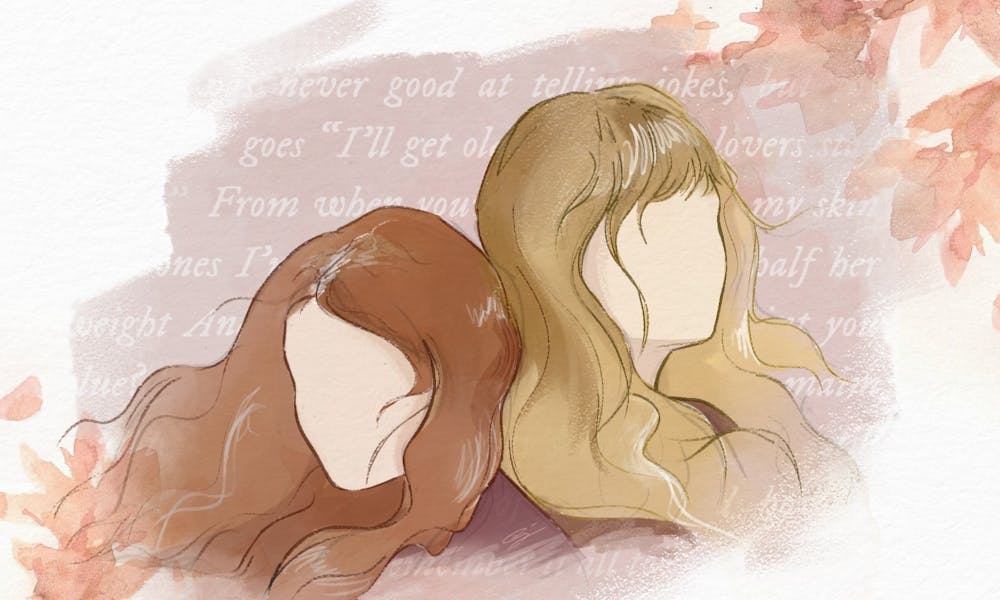In Oct. 2012, when I was 12 years old, my aunt gave me a gift: a copy of Red by Taylor Swift. By late Nov., my mom had limited the amount of times I could play it in the car during the week, leaving me no option but to download it on my iPod and replay it incessantly. I’m not exactly sure why I treasured it so much at the time—I definitely couldn't relate to many of the experiences she sang about. Nevertheless, I lived vicariously through her music. I listened and daydreamed about being “happy, free, confused, and lonely in the best way.” Now that I’m actually 22—well, almost—listening to Red (Taylor’s Version) feels like a gift all over again. It allows me to relive the emotions I once experienced nine years ago—backed by an arsenal of new memories and life experiences.
Listening to the songs this time around feels different, better; her matured voice paired with “Taylor’s Version” between parentheses, signifying her ownership of the record, made it all the more satisfying. Some of my favorite songs—”State of Grace,” “The Lucky One,” “Begin Again”—gain new meaning.
The songs “from the vault,” which were not released in the original album, give deeper insight into her state of mind when she wrote Red. As a listener, it's exciting to find a new song to scream in the car like “I Bet You Think About Me” featuring Chris Stapleton, as well as a song to induce a few tears like “Nothing New” with Phoebe Bridgers (I felt “how can a person know everything at eighteen / but nothin’ at twenty–two?” a little too much).
Among the songs, however, one track was clearly anticipated and certainly stood out: the once mythical ten–minute version of “All Too Well.” For years, fans have identified the song as a favorite tracks on the album—and one of Swift's best songs of all time—despite the fact that it wasn't released a single way back when.
Recently, on The Tonight Show Starring Jimmy Fallon, Swift spoke about her experience composing the lyrics of “All Too Well.” A cathartic songwriting session resulted in a ten–minute version of the song, which eventually had to be cut down to the five–minute and 29–second version that was released. When speaking to Fallon about the original version she said, “Ten minutes is absurd, that’s an absurd length of time for a song … Who thinks that they can put out a ten–minute song?”
Clearly Swift can, and it has led to a wildly popular release, due in no small part to the song's legendary status.
Critics have analyzed whether the new version is an improvement, lyrically or sonically, from the shortened version. Whether or not this is the case, “All Too Well” is more than a song to listen to for pure entertainment. Swift herself has a very personal connection to it, detailing that even though it used to be difficult for her to perform, it gained new meaning as fans embraced it. In short, the track’s significance has evolved throughout time—even if it only encapsulates a singular moment in Swift’s life.
Like many, I listened attentively to the lyrics when I played this version for the first time. I gasped as I soaked in new information about the relationship that inspired the song, how “[he] kept [her] like a secret, but [she] kept [him] like an oath,” the fact that she “[watched] the door all night, willing [him] to come” on her 21st birthday, and the fierce declaration: “I’ll get older, but your lovers stay my age.”
Since then, I have listened to this version countless times: crying on my couch, walking through the colorful autumn trees on Locust Walk, singing in the shower, screaming in front of the TV with my best friend, and watching All Too Well: The Short Film for the first time.
As a fan, I was excited about the project, but I was skeptical about what could differentiate the short film from a regular music video—other than the length. My doubts immediately ceased after watching Swift’s writing and directorial debut. With Sadie Sink and Dylan O’Brien as actors, she painted the image of concerning power dynamics in a relationship with a major age gap.
The short film resulted in a media firestorm. Even my own friends who are either ambivalent about Swift or actively declare themselves not to be fans were invested in how the story was unfolding. The social media discourse included the lighthearted memeification of Jake Gyllenhaal, as well as criticism targeted at both the actor and his 25–year–old girlfriend, Jeanne Cadieu.
At this point, however, the song represents much more to Swift than this failed relationship. Perhaps that’s the most magical thing about this song: Swift took a memory, immortalized it, and made it a touching and relatable experience to listeners around the world, as she so often does in her best work. The new version of “All Too Well” makes me mourn relationships and moments that, if left in the past, may otherwise lose significance.
Even then, it’s not about remembering hurtful times; it’s about taking ownership of them. This is exactly what Swift has achieved through years of performing the song and ultimately releasing it in its true form. This is what Red (Taylor’s Version) is all about. Through the re–release, her fans and listeners have formed a stronger community and are learning to take control of their experiences in the same way.

